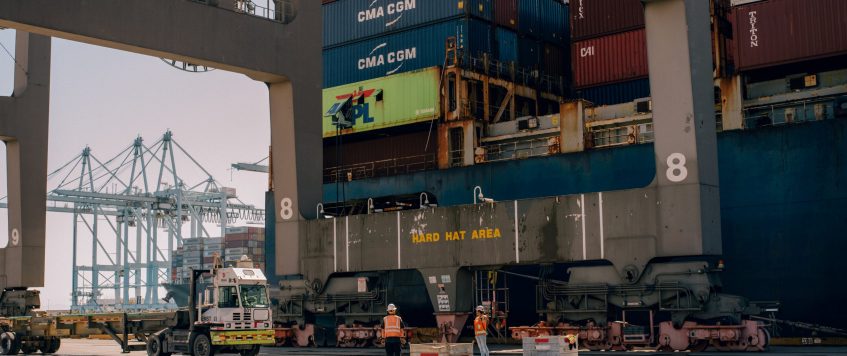-
28
Jun
European Unions Prepare Workers for Summer of Strikes
Transport networks in Europe are facing a wave of summer strike action as an overstretched workforce demands wage increases to match runaway inflation and a spiraling cost of living.
Data to be released by European Union statistical office Eurostat is expected to show that inflation in Europe rose above 8 percent in May, up from 7.4 percent in February. And with wage increase offers typically below those percentages, unions have been turning up the pressure on employers across many industry sectors.
“Even an increase of 10 percent in view of the sharp rise in prices is only a drop in the ocean,” Frank Werneke, chairman of German trade union ver.di, said in a statement this week ahead of a July 4 roundtable meeting between employers and the union called by German Chancellor Olaf Scholz.
Talks between transport unions and employers in Europe are ongoing and highly sensitive, and although port and logistics providers were unwilling to comment, a terminal operator who did not want to be identified expressed concern to JOC.com that the “inflation-busting” wage demands by some unions would be unachievable.
A preview of what may lie ahead this summer was evident in a series of strikes across Europe in the past two weeks. Several 24-hour “warning strikes” by ver.di were held at ports across northern Germany, while a one-day national strike in Belgium closed Brussels airport and created some disruption at the port of Antwerp. A national rail strike in the UK shut down most of the network all last week, and strike action has been announced in Italy, Spain, Portugal, France, and Malta.
“We are expecting a very hot summer for transport all over Europe,” Livia Spera, general secretary of the European Transport Workers’ Federation (ETF), wrote in a letter to European Union transport ministers last week.
The ETF, which represents more than 5 million transport workers from 200 transport unions and 38 European countries, said workers were losing faith in the transport industry amid job and pay cuts coupled with the rising inflation.
“Working conditions in transport have deteriorated so much that the sector is simply not attractive enough to workers,” Spera told EU ministers. “The COVID-19 crisis has meant severe job losses and pay cuts for some groups of transport workers, but the recovery is not bringing anything good for them.
“Transport workers’ income and purchasing power have significantly dropped through a combination of rising inflation and a lowering of pay and working conditions, pushing workers away from our sectors,” she added.
Sharp rise in cost of living
Peter Sand, chief shipping analyst for rate benchmarking platform Xeneta, said the European Union economy was much less dependent on consumer spending than the US economy, and the cost-of-living crisis was being felt more acutely.
“In March, retail sales in the European Union were up only 1.7 percent — and just 0.8 percent in the Eurozone — which, with inflation, explains the 2.3 percent fall in total container imports to Europe in the first four months of the year,” Sand said in a market update Tuesday.
Container Trades Statistics (CTS) put Asia-North Europe imports from January through April down 2.5 percent year over year at 3.41 million TEU.
The 24-hour strikes by ver.di at the ports of Emden, Bremerhaven, Bremen, Brake, Wilhelmshaven, and Hamburg over the past two weeks were designed to force port employers back to the negotiating table after wage talks broke down. A subsequent one-off payment offer the German chancellor announced will be on the table at the July 4 meeting has already been rejected by Werneke, who said workers were facing permanently rising prices.
“These must be compensated for with long-term collective wages,” he said in the statement Monday. “Anything else leads to a loss of real wages. That is why we are clearly entering into the current collective bargaining negotiations with the aim of compensating for price developments through an increase in collective wage agreements.”
The German Trade Union Confederation (DGB), of which ver.di is a member, is negotiating new collective agreements for almost 10 million employees this year, but the wage talks are making little progress.
ver.di noted Monday that with German port employers failing to reach a resolution in the fourth round of negotiations for about 12,000 employees, further strikes “cannot be ruled out.”
By: Greg Knowler / JOC

